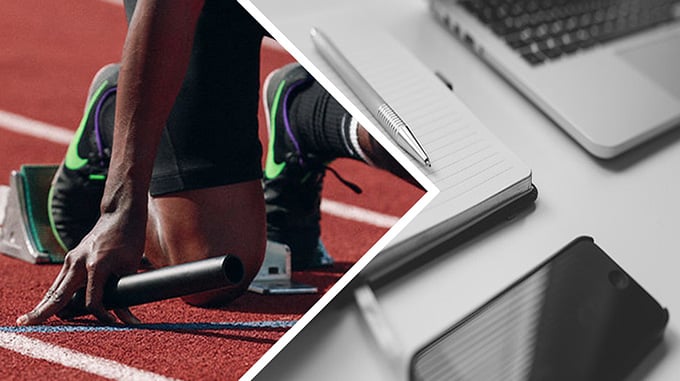Search the latest and greatest job opportunities in sport
 When the time comes for an athlete to make the hard decision to retire, they will be confronted with a very new challenge. The need to address the career opportunities open to them after life as a professional athlete.
When the time comes for an athlete to make the hard decision to retire, they will be confronted with a very new challenge. The need to address the career opportunities open to them after life as a professional athlete.
Experts acknowledge that the feelings associated with ending a career in competitive sport can be described as "inherently stressful" and even "traumatic". Others have compared the experience of transitioning to that of grief or a loss.
Athletes' entire identities typically centre around their success in a sporting context, so removing those foundations can be disorientating. Psychologists suggest that retiring athletes benefit from sessions with well-trained counsellors, who have the appropriate skills to assist them through what can be a difficult transition period, including psycho-educational and cognitive behavioural interventions that focus on the emotions of trauma and loss, but also put a positive emphasis on their transferable skills.
Those transferable skills of training, working hard and striving to reach the top of the game are highly desirable in the world of business. Skills associated with sports professionals include discipline, teamwork, leadership, motivation, decision-making, performing under pressure, ambition, goal-orientation and resilience.
One ex-professional athlete who has a successful second life after sport is the double Olympic Champion, Dame Kelly Holmes. The trust set up in her name now supports athletes through their challenges and into a life beyond sport, as well as getting young people’s lives on track.
Dame Kelly said: “As in athletics, in business, there’s this underlying acceptance that you have to dedicate your life to the pursuit of excellence. Planning, tracking, monitoring, adjusting, succeeding - and failing - are all part of your journey.
"Knowing what is gold is to you, sets the visions for you to follow. The attitudes, attributes and behaviours you adopt to succeed in business are the same as those of an elite athlete; being prepared for change, understanding the pitfalls and finding openings.”
Dr Jack Lesyk of the Ohio Center for Sports Psychology formalises these qualities and attributes with his Nine Mental Skills of Successful Athletes, which are:
These skills, that have been deeply embedded in athletes throughout the rigorous years of training and dedication, can be applied equally in the comparable 'performance environment' of business.
After all, what is a job interview, doing a presentation, taking an exam, landing a plane, defending an accused criminal or performing brain surgery? They're all just another type of 'performance situation' which requires all the mental skills listed above.
When athletes make the difficult and traumatic transition out of competitive sport, the list of skills they possess is actually enviable. When considering their next move, their main problem might be having too many options, rather than too few.

Search the latest and greatest job opportunities in sport
In the world of professional sports, sponsorship represents a significant source of revenue and plays a vital role for t...
Read moreThe sports industry is a vibrant and multifaceted industry, made up of a diverse range of sectors that shape its global ...
Read morePablo Romero, director of protocol at Sevilla FC and lecturer in the UCAM Master's Degree in Sports Management, shares t...
Read more